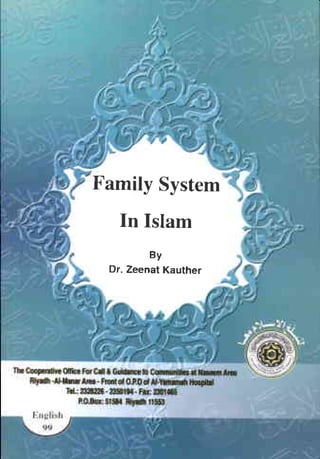
The main purpose of this course is to prepare students in responding to contemporary challenges family as an institution is facing at national and a global level.
Home plays a vital role in transfer of value, mannerism, and development of personality. An individual is born, brought up, and trained in family-atmosphere; this leaves an everlasting impression on one’s personality and character. Human character and habits are formed at home. This influence not only on human’s life pattern but also on his role in society. The Qur’an lays great emphasis on family life and provides guidance on good family. A well knitted family system serves as solid foundation for the society and building future of mankind. It is time to contemplate on the foundations, on which family life is built in the contemporary world and compare it with the guidelines provided by Islam.
The course creates awareness about family system in Islam and role of family is social development. It helps the students in understanding basic challenges of modernity and their possible solutions in the light of the Qur’an and Sunnah. This course focuses on theoretical and practical aspects of family life in Islam, well-being of children, parenting, and roles and responsibilities of parents in 21st century changing social paradigm, and the health and well-being of adults.
Part-I
Unit I: Concept of Family: Definitions & Classification
General Objectives
a .On successful completion of this course, the students will be able:
b.Specific Objectives
Attitude/ Behaviour
 Family system in islam
by
Family system in islam
by